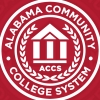By Brandon Moseley
Alabama Political Reporter
The Alabama House of Representatives passed the Fostering Hope Scholarship bill, SB157. SB157 has already passed the Senate and is now headed to the Governor’s desk.
Alabama Governor Robert Bentley announced in a statement that he supports the bill and will sign it. Gov. Bentley wrote, “The Legislature has given final passage to SB157, establishing the Fostering Hope Scholarship. This program will offer children currently or formerly in Alabama’s Foster Care System the opportunity to receive a college education. We owe it to our children to give them every possible opportunity for a successful life, and this bill helps those in the foster care system prepare for success. I commend the Legislature, specifically bill sponsors Sen. Dick Brewbaker and Rep. Paul Lee, for passing this bill. After a full legal review, I intend to sign it into law.”
SB157, the Fostering Hope Scholarship Act of 2015, creates a tuition scholarship program for current or former foster children in Alabama. The Department of Human Resources is authorized to administer the program, develop rules to administer the program, and establish a support system for participants in the program.
The Fostering Hope Scholarships would also include children who were adopted from the program at the age of 14 or older. Commencing with the 2016-2017 academic year, the program will pay for tuition and required fees at any public two-year or four-year institution of higher education in the state. It would also pay required fees for job training courses or skill certifications that are offered by any public two-year or four-year institution of higher education in the state or other publicly funded training programs in the state not considered an associate’s degree, if the courses or certifications are first approved by the department.
The program shall include a mentor service administered by the department as a support system for participants of the college tuition scholarship program. The mentors shall be compensated by the department, as employees or contractors, and will help participants adapt to independent living and to academics and other college or university activities.
Appropriations for the program shall be used by the department on behalf of participants in each fiscal year to pay the tuition and fees. The department may not use more than 10 percent of the total state appropriation made to the program in any fiscal year for costs associated with the mentor service. The department shall develop rules for ensuring that expenses of the Fostering Hope program in a fiscal year do not exceed funding for the program in that fiscal year. The department may limit the acceptance of applications for Fostering Hope scholarships and may limit the award of scholarships.
In no event shall tuition and required fees be paid for more than 72 academic hours toward an associate’s degree or 144 academic hours toward a bachelor’s degree for each participant. The program shall only pay tuition and fees relating to an undergraduate degree.
To be eligible to participate in the program, a scholarship applicant shall satisfy all of the following requirements: be in the legal custody of the foster care program of the department at the time of graduation from high school or earning a General Educational Development (GED) high school equivalency certification; or in the permanent legal custody of the foster care program of the department when his or her adoption is finalized, at 14 years of age or older, and has graduated from high school or earned a GED certification. Applicants can not have net personal assets worth more than $30,000 adjusted for inflation and must be younger than 26 years of age at the start of the semester, training program, or certification program for which tuition or fees are requested from the program.
Applicants have to be accepted for enrollment in a degree-granting, training, or certification program, or is enrolled and working toward a degree, certificate, or completion of a job training program, at a public two-year or four-year institution of higher education or publicly funded training program in the state. Applicants must be making adequate progress toward the completion of a degree, certification, or training program as determined by rule promulgated by the department.
Applicants must complete and submit to the United States Department of Education a Free Application for Federal Student Aid (FAFSA), or the equivalent, before each year in which he or she receives a Fostering Hope scholarship. He or she shall also have applied for all federal student financial aid grants, including Pell grants, Supplemental Education Opportunity Grants, and Education and Training Vouchers, identified as being available for the student’s application by the department or by Federal Student Aid, an office of the United States Department of Education, or its successor agency.
After the first year of participation, an applicant shall also complete annual volunteer service requirements or employment requirements pursuant to rules promulgated by the department and remain in good standing with the policies established by the college, university, or other training or certification program.
Scholarship funds may be disbursed only if sufficient funding for the Fostering Hope program is available.
Scholarship awarded may not be reduced by the amount of any federal aid, scholarship funds, or grant funds otherwise received by the person or by the amount of any private donations made to assist the Fostering Hope program.
Fostering Hope scholarship funds shall be applied to tuition and mandatory fees before any other grant, loan, voucher, or scholarship the student may be awarded to attend a public two-year or four-year institution of higher education in the state or publicly funded state training program. This act shall become effective on October 1, 2015.






















































